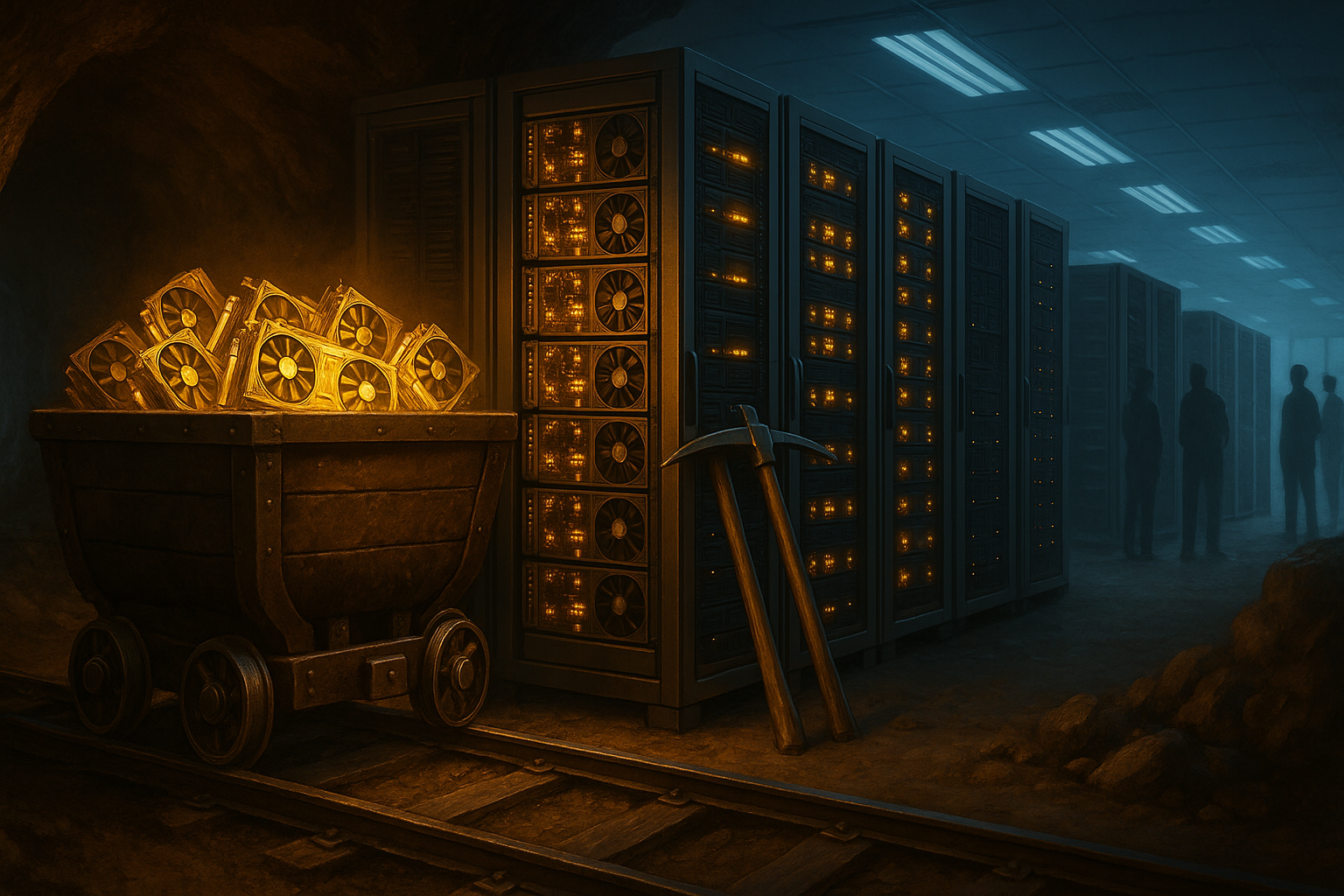Microsoft has dropped a bombshell on the tech world, signing a massive $17.4 billion, five-year deal with Nebius Group for GPU infrastructure. Nebius shareholders are—predictably—over the moon, with shares jumping 33% after hours. And why wouldn't they be? They've just secured a contract worth roughly $9.5 million per day until 2029.
Let's be real about what we're seeing here. This isn't just another tech partnership announcement—it's the clearest signal yet that we've fully entered what I've been calling the "picks and shovels" phase of the AI gold rush.
I've covered tech infrastructure deals since 2018, and nothing comes close to the frenzied pace we're witnessing now. While everyone debates whether Claude or GPT-4 or Gemini gives better responses, the companies selling computational power are laughing all the way to the bank.
The economics driving this deal are fascinating and somewhat terrifying. Microsoft isn't throwing around billions because Satya Nadella suddenly developed an expensive gaming habit (though who among us wouldn't splurge a bit with Microsoft's cash reserves?). They're responding to a fundamental market constraint—there simply aren't enough high-powered GPUs to go around for the AI revolution everyone's betting on.
Here's the dirty little secret of generative AI that most press releases won't tell you: these systems are computational monsters. GPT-4 reportedly needed something like 25,000 NVIDIA A100 GPUs just for training. Do the math on that hardware cost—we're talking north of $500 million at retail, if you could even find that many chips.
Every single chat completion. Every image generation. Every bit of AI magic requires serious computational firepower running 24/7.
What we're seeing is nothing less than a land grab for computational capacity. Microsoft, Google, Amazon, Meta—they're all scrambling to secure as much GPU infrastructure as possible. It might be the most expensive arms race in corporate history.
And look, this isn't just about keeping up with the Joneses of Silicon Valley. It's about controlling the fundamental infrastructure that will power everything in the next technological era. Microsoft's strategy makes perfect sense: they can't build specialized AI data centers fast enough on their own, so they're partnering with specialists like Nebius.
Think about it. Five years ago, would anyone have predicted that access to GPUs would become one of the most strategically valuable resources in tech? Well, NVIDIA's Jensen Huang probably did, which explains why he's now worth approximately seventeen gazillion dollars (give or take a few billion).
The conventional wisdom used to be that software was eating the world. Now it seems like AI is eating the world, and specialized hardware is eating AI. The companies controlling computational infrastructure have positioned themselves as the essential middlemen of the new economy.
This reminds me of the railroad boom of the 1800s (and yes, I realize how nerdy that reference is). The companies that controlled the physical rails ended up with enormous power over the entire economy. Now, the companies controlling computational "rails" are positioning themselves similarly.
There's a weird irony here, isn't there? We're creating increasingly sophisticated artificial intelligence using increasingly scarce physical resources. That's a tension that will eventually need resolving—either through technological breakthroughs in efficiency or through economic means.
For Microsoft, this deal represents a strategic bet that AI's importance will continue growing exponentially. For Nebius, it's validation of their business model and a guaranteed revenue stream that would make most Fortune 500 CEOs weep with joy.
The question investors should be asking isn't whether AI is overhyped (it probably is, in some ways), but where the most defensible positions in this new landscape will be. Right now, controlling computational infrastructure seems like a pretty good place to plant your flag.
So Nebius shareholders are celebrating tonight, Microsoft is securing its AI future, and the great GPU race marches on. The gold rush analogies practically write themselves, but I'll try to restrain myself. Just remember that while prospectors occasionally struck it rich during actual gold rushes, the people selling picks, shovels, and blue jeans (hello, Levi Strauss) were the ones who built lasting fortunes.
In other news that won't get nearly as much attention but probably should: - Berkshire Hathaway's cash pile has hit a mind-boggling $277 billion. At this point, Buffett could probably buy a small European country, but he's still patiently waiting for the right deal. - Bitcoin briefly topped $59,000 before retreating again. The crypto market continues to be driven by... actually, I have no idea. Does anyone? - The Fed seems increasingly likely to cut rates this month. Markets are pricing in a 100% probability, which means they're definitely going to be wrong about something.
